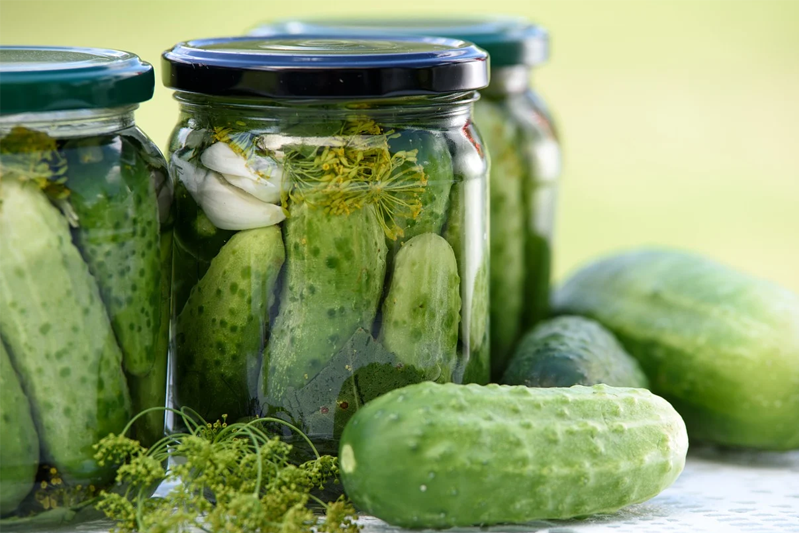Revised as of
18 Nov 2022
In one way ferment vs foment are similar — they both are used to describe an agitation or stirring up of people.
They diverge in their other meanings.
Ferment also refers to an anaerobic process that uses living organisms like yeasts, molds, and certain bacterias to instigate a chemical process that breaks down sugars. It’s a process used in making pickles and alcohols, including beer.
Foment has a more archaic definition by which doctors recommended using warmth to relieve aches and injuries. Well, nothing much has changed there . . .
Word Confusions . . .
. . . started as my way of dealing with a professional frustration with properly spelled words that were out of context in manuscripts I was editing as well as books I was reviewing. It evolved into a sharing of information with y’all. I’m hoping you’ll share with us words that have been a bête noire for you from either end.
If you found this post on “Ferment versus Foment” interesting, consider tweeting it to your friends. Subscribe to KD Did It, if you’d like to track this post for future updates.
| Ferment | Foment |
|---|---|

Gherkins by PhotoMIX-Company is under the Pixabay License, via Pixabay. — All pickles are fermented. |

Hot Water Bottle by Biffo is under the Pixabay License, via Pixabay. — For centuries doctors recommended fomenting injuries. |
| Part of Grammar: | |
| Noun; Verb, intransitive & transitive
Plural for the noun: ferments Third person present verb: ferments |
Verb, transitive
Third person present verb: foments |
| Noun: Agitation, unrest, commotion, tumult, and excitement among a group of people, typically concerning major change and leading to trouble or violence [Archaic; organized ferment] Any of a group of living organisms, as yeasts, molds, and certain bacteria, that cause a chemical process by which molecules such as glucose are broken down anaerobically [Archaic; unorganized ferment] An enzyme Verb, intransitive:
[Of a negative feeling or memory] Fester, inflame, foment into developing into something worse To cause agitation or excitement in Verb, transitive: Incite or stir up (trouble or disorder) |
Instigate or stir up (an undesirable or violent sentiment or course of action)
[Archaic] Bathe (a part of the body) with warm or medicated lotions |
| Examples: | |
| Noun: Germany at this time was in a state of religious ferment. The new painters worked in a creative ferment. The capital lived in a political ferment. No germs of ferment have been added. Whenever urine is exposed to the air in open vessels for several days it undergoes an alkaline ferment. Verb, intransitive: The vegetables’ sugars convert into lactic and acetic acids and carbon dioxide when brined and fermented. It had been fermenting in my subconscious for a while. Reading fermented his active imagination. Verb, transitive: Trump fermented prejudiced crowds to riot on January 6th. The politicians and warlords who are fermenting this chaos should be shut down. |
They accused him of fomenting political unrest.
Foment the injury with a warm poultice. “John Adams’s wife, Abigail, told him that if women were not remembered by the new American government, they would “foment a Rebellion and will not hold ourselves bound by any Laws in which we have no voice or Representation.” |
| Derivatives: | |
| Adjective: fermentable, fermentative, nonfermentable Noun: fermentability, fermentation, fermenter, nonfermentability |
Adjective: unfomented Noun: fomentation, fomenter, fomenting |
| History of the Word: | |
| Late Middle English from the Old French ferment (noun), fermenter (verb), based on the Latin fermentum meaning yeast, from fervere meaning to boil. | Late Middle English from the French fomenter, from the late Latin fomentare, from the Latin fomentum meaning poultice, lotion, from fovere meaning to heat, cherish. |
C’mon, get it out of your system, bitch, whine, moan . . . which words are your pet peeves? Also, please note that I try to be as accurate as I can, but mistakes happen or I miss something. Email me if you find errors, so I can fix them . . . and we’ll all benefit!
Satisfy your curiosity about other Word Confusions on its homepage or more generally explore the index of self-editing posts. You may also want to explore Book Layout & Formatting Ideas, Formatting Tips, Grammar Explanations, Linguistics, Publishing Tips, the Properly Punctuated, Writing Ideas and Resources, and Working Your Website.
Resources for Ferment versus Foment
Apple Dictionary.com
Dictionary.com: ferment, foment
“Ferments at Berkeley (formerly known as Californium Brewing and Winemaking).” University of California-Berkeley. 2014. Web. 24 April 2022. <https://callink.berkeley.edu/organization/ferments>.
Merriam-Webster: foment
Pinterest Photo Credits:
Hooligans Invade the Pitch by Wolfried Paetzold and courtesy of the German Federal Archives. It is under the CC BY-SA 3.0 Germany license, via Wikimedia Commons.


